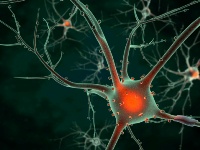 The cure for cancer and Alzheimer’s is within our reach, researchers say, but there’s one thing preventing them from pursuing it. The cure for cancer and the cure for Alzheimer’s are blocked by drug laws, according to a new editorial review published in Nature Reviews Neuroscience. The researchers revealed that drug laws—restrictions on studying the benefits of illegal drugs such as marijuana and ecstasy—are costing millions of lives every year, because they believe that these drugs might give us the key to the cure for cancer and the cure for Alzheimer’s.
The cure for cancer and Alzheimer’s is within our reach, researchers say, but there’s one thing preventing them from pursuing it. The cure for cancer and the cure for Alzheimer’s are blocked by drug laws, according to a new editorial review published in Nature Reviews Neuroscience. The researchers revealed that drug laws—restrictions on studying the benefits of illegal drugs such as marijuana and ecstasy—are costing millions of lives every year, because they believe that these drugs might give us the key to the cure for cancer and the cure for Alzheimer’s.
Because many psychoactive drugs are illegal or under strict regulations, researchers cannot study how these drugs might help treat and prevent illnesses. And according to the lead author of the editorial, David Nutt, chair of neuropsychopharmacology at Imperial College in London, these restrictions are hindering progress in the scientific community. When Nutt published research showing that ecstasy was not as harmful as drinking or horseback riding in 2009, he was fired from his job as an advisor to the British government.
Are Restrictions Hindering Progress to Alzheimer’s and Cancer Treatment? Study Explores
These restrictions are blocking the many possible new treatments that these drugs may hold. For example, if researchers want to study the benefits of marijuana, it requires an extensive project: researchers can only legally get the drug from the National Institute on Drug Abuse, and they must undergo a special review and other Food and Drug Administration (FDA)-approved protocols—something they wouldn’t have to do if they were studying legal drugs.
But what hurts Nutt and his team is that these drugs hold a lot of promise—something many people are reluctant to see—and these drug laws might just be blocking the cure for cancer and the cure for Alzheimer’s.
Recent research shows that marijuana can be beneficial to alleviate pain and nausea in many situations, but can even go beyond that: one study found that marijuana can treat diabetes and obesity. Three studies have found that marijuana users are less likely to be obese than non-marijuana users; as well, they have a lower risk for diabetes—even if they consume more calories than others.
According to the lead author of the study, Murray Mittleman, an associate professor of medicine at Harvard Medical School, marijuana users actually have a better carbohydrate metabolism than non-marijuana users. In the controlled study with over 4,600 people, marijuana users were found to have 16% lower fasting insulin levels and were less resistant to the insulin produced by their own bodies, allowing them to maintain a normal blood-sugar level. Other studies have found that certain compounds in marijuana can be beneficial for treating cancer, or Alzheimer’s disease.
But because of the tight drug laws, researchers are discouraged from looking at the research on marijuana and other drugs.
“Inadvertent consequences of drug laws set up to stop people coming to harm failed to do that and inadvertently really screwed over research,” Nutt told TIME. He would like to see the drug laws and restrictions removed or lessened so he can continue making progress on the hunt to find a cure for Alzheimer’s and a cure for cancer.
Ultimately, so much research has been done on conventional treatments for cancer and Alzheimer’s that are rarely effective. It’s time to start looking elsewhere—could the answer lie in alternative medicine?
Source(s) for Today’s Article:
Szalavitz, M., “Marijuana: The next diabetes drug?” TIME web site, May 21, 2013; http://healthland.time.com/2013/05/21/marijuana-the-next-diabetes-drug/, last accessed June 17, 2013.
Nutt, D.J., et al., “Effects of schedule I drug laws on neuroscience research and treatment innovation,” Nat Rev Neurosci. June 12, 2013.
Szalavitaz, M., “Drug war blocking potential treatments for cancer, Alzheimer’s, journal claims,” TIME web site, June 14, 2013; http://healthland.time.com/2013/06/14/drug-war-blocking-potential-treatments-for-cancer-alzheimers-journal-claims/, last accessed June 17, 2013.
